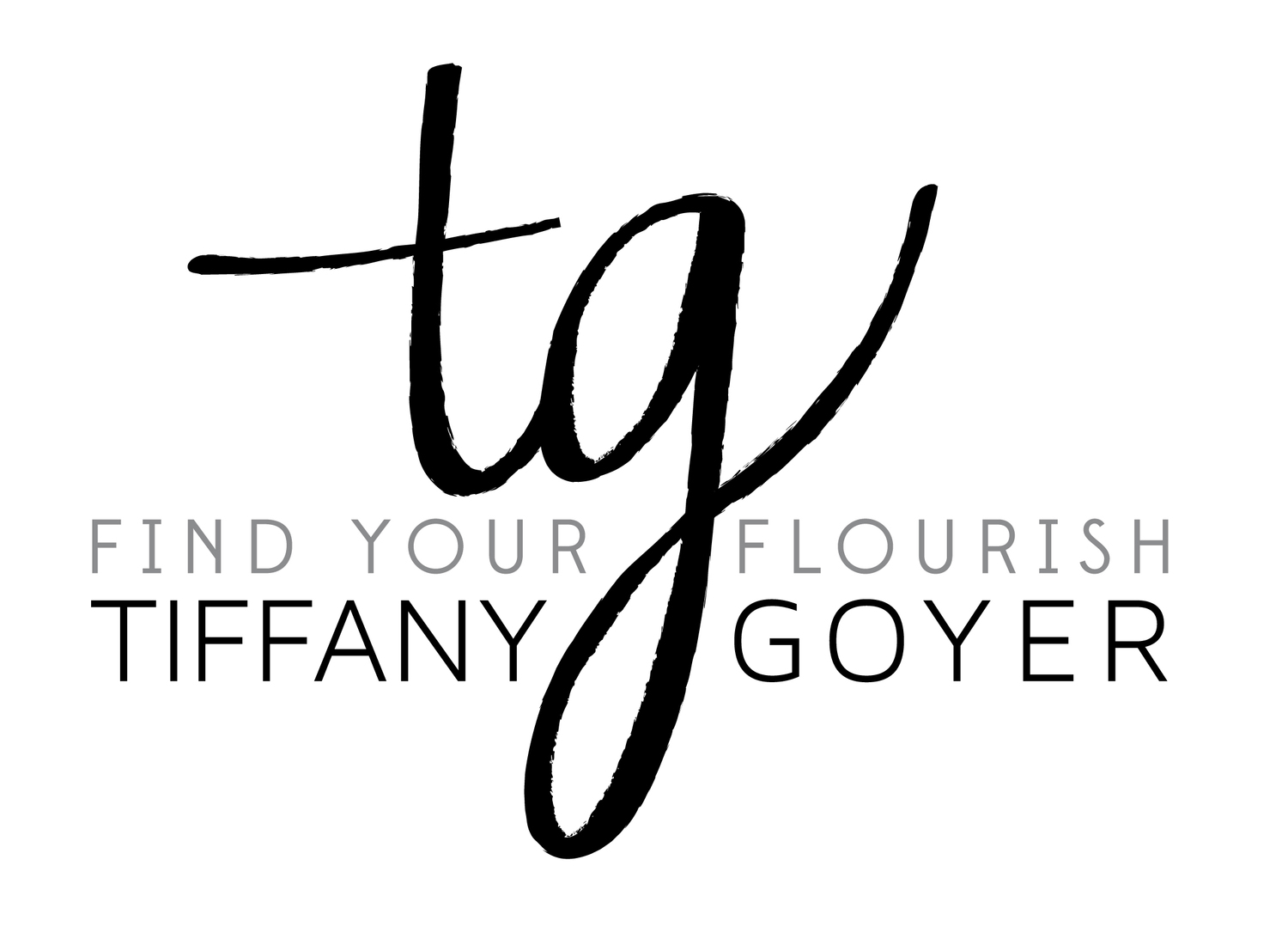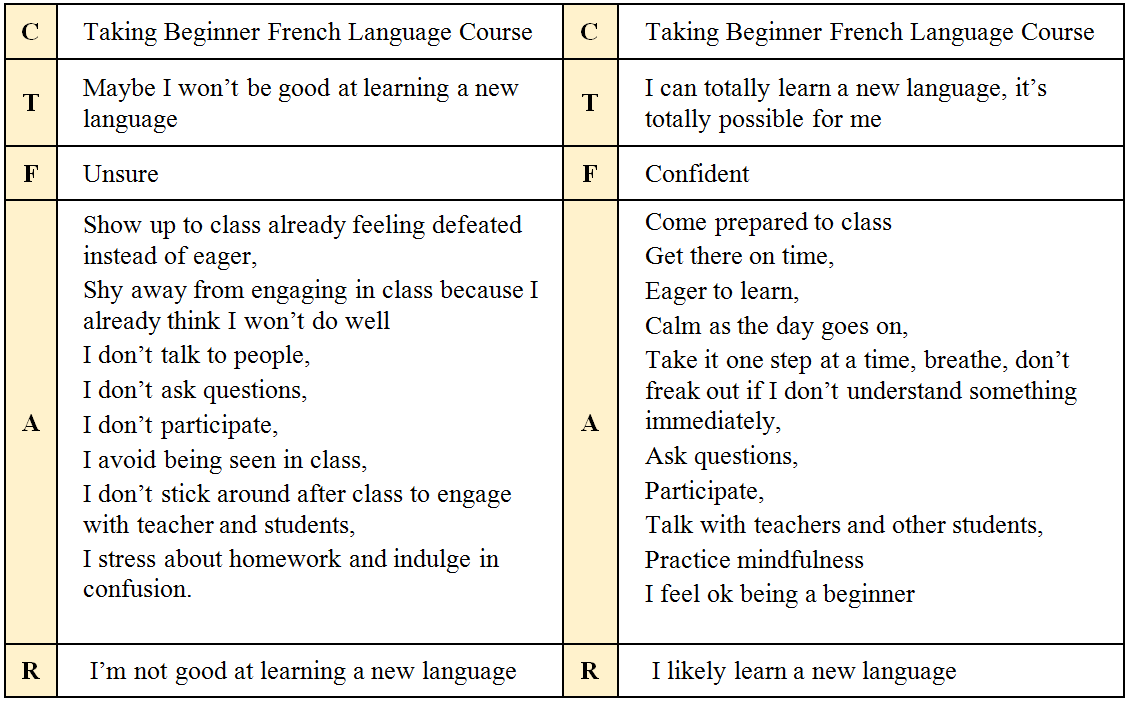Somewhere inside you’re telling yourself you just need one more certification, one more degree, a few more years of experience and THEN you’ll be good. Then you’ll be confident.
Two things I’ve learned about confidence, and they will short circuit your thinking about this.
(1) Confidence is a choice (yes, I did say that) and
(2) Confidence is not about perfection or “knowing it all” in your field, or some other part of your life. It’s is about how you meet your circumstances, you know those things that happen in life that we don’t always have control over?
"If confidence were a choice, I’d totally be making it, you just work hard and one day it just comes." THOUGHT ERROR. This is not how it actually works.
But I used to think this too. At one point, I would have been right beside you on that roller derby. Knee pads and helmet on, and high velocity skating my way to the “finish line” where confidence waited. Bump off enough walls, zing by enough competitors, work harder and I’d fly over that finish line and finally have it.
The thing is, this isn’t how it’s unfolded.
Thinking confidence-producing thoughts is why we feel confident, it’s not because of our accomplishments!
As you know, I teach that our thoughts create our feelings, not the other way around. Confidence is a feeling, that is available to you right now, but you have to have thoughts that create the feeling of confidence.
This means, no matter how much action we take in the world if we don’t stop and look at our thoughts, nothing will change long term. If you’re on board with this, then literally WHAT YOU ARE THINKING is the difference between you and confidence.
So, if you want to feel confident, look at what you’re thinking! Stat!
So many of my clients struggle with confidence, we all do of course! And the number one thing I notice causing the struggle is how much they beat themselves up. Literally, their thinking about themselves is all that holds them back. When we beat ourselves up for not being “perfect," or for not doing what we tell ourselves "we SHOULD be doing” we don't feel “confident” and we hold ourselves back. Even if we have many good reasons to feel confident. It's never enough, or it doesn't last very long.
That voice in our head telling us what it looks like for us to earn confidence, it’s still on that roller rink sweating, fighting and straining to create a feeling of confidence … It’s backwards. Stop it, please.
You’ve got to take some time to understand your thoughts around confidence. To really investigate those thoughts, run models. See How To Use Thought Models if you would like a refresher. See below for some examples models to help you understand the concepts in this blog.
Once you are conscious of your current stories around confidence, THEN you’re ready to really choose confidence, to begin to create more purposeful thinking that makes you feel confident.
Let's look at this in more detail.
I choose to use "my circumstance" of taking a Beginner French Language Course so that you can see what we do to ourselves when we practice thoughts that do not produce confidence, and how different our experience and results can be when we do practice confidence producing thoughts.
My current story about taking French is that I am totally unsure and afraid I will never be able to learn this language. How can I find the confidence? The confidence to learn will not come after I learn the language, right? I need to practice confidence now, in order to learn it. Before I have the experience of being able to speak the language. I could do it the other way around, maybe... but it would be feel terrible and maybe I would fail. Let's look at this closer.
Check out the thought models below, they will blow your mind.
As you read see how the same circumstance, but with differing thoughts can make all the difference in my ability to learn French or not. How incredible is this? And keep in mind that:
- C= Circumstances are the facts, they are always neutral until we attach a thought to them, and circumstances can trigger thoughts.
- T= Thoughts are OPTIONAL. They are sentences in our mind that cause feelings.
- F= Feelings are vibrations in our body that cause our actions.
- A= Actions that can be those that we either take or don’t take, or reactions. Actions cause our results.
- R = Results are ultimately what we get in our life because of our thinking. Our results will always provide us evidence that our thoughts are true, even if they are faulty thoughts. The key is that thoughts are optional, so we can always choose confident thoughts, over ones that make us question ourselves.
Unintentional Thought Model vs Intentional Thought Model:
Your turn!
Pick a circumstance in your life that you want to feel confident about.
1. Write for 5 minutes about all of the thoughts and feelings in your mind about this circumstance as it currently stands in your current mindset.
2. Identify thoughts that are perhaps unintentional or are not serving you.
3. Do a model on this thought and see what results it is producing for you. Interesting huh? Keep in mind thoughts are optional.
4. Now pick a thought that you can practice believing that produces the feeling of confidence. Remember you have the option to choose your thoughts. So why not choose ones that will make you feel confidence and get the results you want?
5. Run another model on this new though. This is your intentional model.
Practice this thought daily every morning for 1 month. See how your life changes.
Email me about what you noticed. I’ll help you out if you get stuck.
Sign up for my next free community coaching call and get on the list to be coached if you need additional help.
Feel good about the work you are doing on yourself to live an intentional life and have more self-confidence, even though you are not perfect at it. You get an A for effort always!
Have a confident weekend friends,








